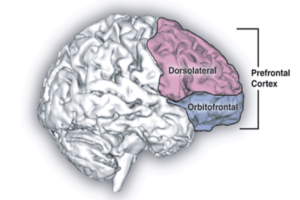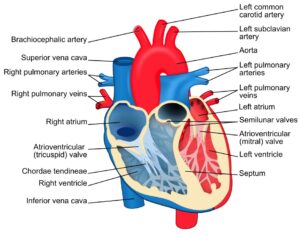
Image: A group of cogs arranged in the shape of a brain (Source: Unsplash, Taras Hrytsak).
Many evidence-based theories suggest that humans avoid effort. We’re not lazy, we’re just hardwired to take the path of least resistance. There is indeed scientific evidence in favor of this theory. One study, for example, had 52 participants go through a series of tests in which they had to decide whether a group of dots on a screen were moving left or right (Hagura et al., 2017). A participant would move a lever in their left hand to indicate that the dots were moving to the left, or a lever in their right hand if they thought they were moving right. Unknown to the participants, the researchers began to add weights to the levers. Results showed, when the left-side lever became heavier and harder to move, participants were more likely to decide right for a group of dots showing ambiguous movement (if no weight was added, one would not expect the participant to decide left or right on a roughly even basis).
But this is just one very specific test of human effort. What about the times we exert effort, even when there is no obvious external reward? People enjoy pondering over complex puzzles or practising tirelessly to play the perfect tune even when there is no external reward. These counterexamples have led scientists to question whether cognitive effort is always so aversive. Perhaps the right sort of reward – either extrinsic (money, recognition, etc.) or intrinsic (an internal sense of achievement), can tip the scales in favour of engaging in strenuous mental or physical activity.
Recently, a team of researchers from the University of Vienna and the Technische Universität Dresden, carried out a study which split 121 participants into two groups (Clay et al., 2022). The team measured participants’ heart activity as a proxy for how much effort they were exerting on a working-memory task and a math task. The first group was rewarded based on the effort they put in, so they received more reward for putting in more effort on a difficult level of the tasks, compared to less reward on an easier level. The second group was rewarded randomly, irrespective of effort. The experiment involved two stages – one where the participants received rewards and another where no rewards were handed out. The scientists’ found that if an individual was rewarded more for a difficult task in the first period, they were more likely to choose a challenging task in the second, even though it was made clear that there was no more opportunity to gain reward. In comparison, the group that was rewarded randomly in the first period was less likely to choose a more challenging task in the second.
To further validate the results, the experiment was repeated online with 1,427 participants performing the same tasks. Here, participants were rewarded based on the difficulty of the task, regardless of how well they performed on it. The conclusion was the same; effort-dependent reward led people to pick more difficult tasks despite there being no further chance of reward.
One of the leading researchers of the study, Professor Thomas Goschke, concluded that taking the path of least resistance may not always be the default choice. Rather, whether effort or performance is rewarded can play a role in how we choose or avoid challenging tasks (Clay et al., 2022).
References
Clay, G., Mlynski, C., Korb, F. M., Goschke, T., & Job, V. (2022, February 1). Rewarding cognitive effort increases the intrinsic value of Mental Labor. PNAS. Retrieved February 10, 2022, from https://www.pnas.org/content/119/5/e2111785119
Hagura, N., Haggard, P., & Diedrichsen, J. (2017, February 21). Perceptual decisions are biased by the cost to act. eLife. Retrieved February 10, 2022, from https://elifesciences.org/articles/18422#abstract
Related Posts
UV-Vis Spectroscopy: A Step in the Light Direction
Executive Board Advisor: Nishi Jain Co-Authors: Daniela Galvez-Cepeda, Katherine Faulkner,...
Read MoreAn Overview of Oncology Treatments
Lead Authors: Dina Rabadi1, Sarah Matatov2 Co-Authors: Carolina Guerrero1, Nina...
Read MoreStudy Reveals the Prefrontal Cortex is a Key Conductor in Sleep Regulation
Source: Laboratoires Servier, (CC BY-SA 3.0) Sleep is a fundamental...
Read MoreAre We Driving Our Dogs Sick Through Our Urban Lifestyles?
Figure 1: Allergic disorders in humans and dogs are associated...
Read MoreAn International Team of Researchers Just Solved One of the Biggest Mysteries About the Human Heart
Figure 1: The heart is one of the most complex...
Read MoreNadiyah Dhoraji






